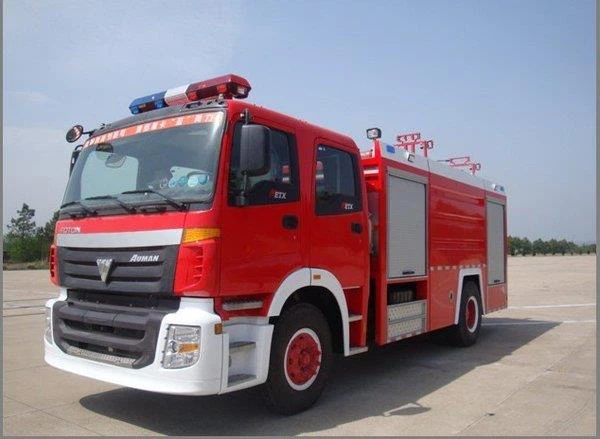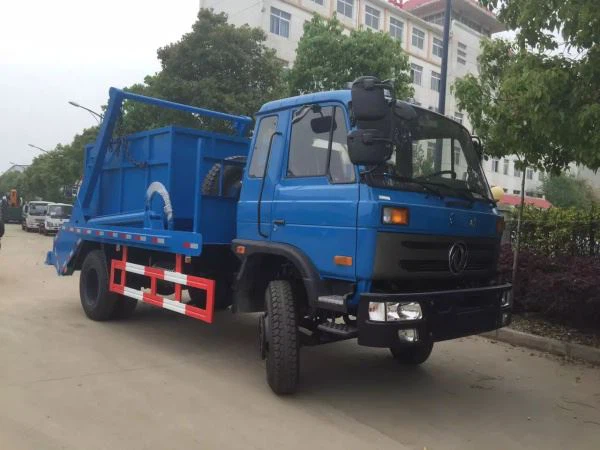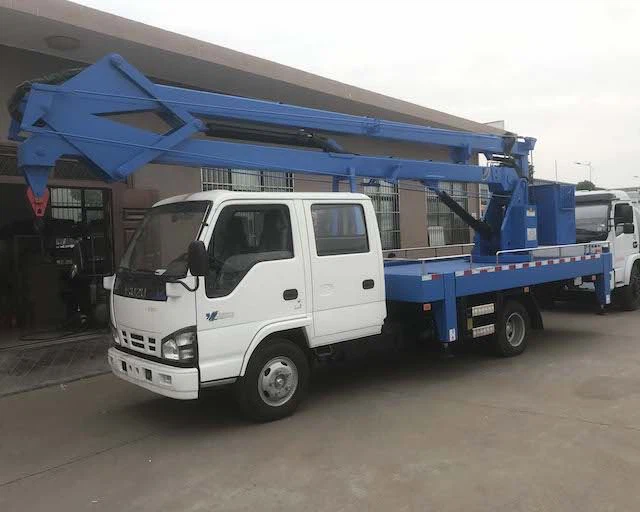Understanding Waste Trucks: Types, Functions, and Innovations

Introduction to Waste Trucks
Waste trucks play a crucial role in modern waste management systems, aiding in the efficient collection and transport of waste materials from households, businesses, and construction sites. With varying designs and functions tailored to specific waste types, these vehicles are essential in keeping our communities clean and sustainable. This article delves into the types of waste trucks, their operational mechanisms, the environmental impact, technological advancements, and practical tips on waste management.
1. Types of Waste Trucks
1.1 Rear Loaders
Rear loader trucks are one of the most common types of waste collection vehicles. They are designed with a hinged rear compartment that opens up to allow waste collection crews to manually load materials.
- Advantages: Cost-effective and ideal for areas with less waste.
- Disadvantages: Slower collection due to manual loading.
1.2 Front Loaders
Front loader trucks are equipped with a hydraulic arm that lifts and empties large dumpsters. They are primarily used in commercial waste collection.

- Advantages: Faster and more efficient than rear loaders.
- Disadvantages: Higher operational costs due to maintenance.
1.3 Side Loaders
Side loader trucks can collect waste from the side of the vehicle. These trucks are often automated, allowing for single-operator collection.
- Advantages: Reduces labor costs and increases efficiency.
- Disadvantages: Requires more road width and space for operation.
1.4 Compaction Trucks
Compaction trucks are designed to compress waste, allowing for more efficient transport. This is particularly useful for soft waste like food and paper.
- Advantages: Increases load capacity and reduces trips to disposal sites.
- Disadvantages: Can be more expensive due to their specialized design.
2. The Waste Collection Process
The waste collection process is systematic and involves several stages to ensure efficiency and environmental safety.
2.1 Schedule Planning
Waste collection schedules are typically established based on the type of waste, volume, and local regulations. Cities often adhere to weekly or bi-weekly schedules.
2.2 Route Optimization
Effective route planning is vital for minimizing fuel consumption and travel time. Using GPS technology, waste management companies can optimize their routes based on live traffic data.
2.3 Vehicle Maintenance
Regular maintenance of waste trucks is essential for ensuring safety and operational efficiency. This includes routine checks on hydraulic systems, brakes, and compaction mechanisms.
3. Environmental Impact of Waste Trucks
Waste trucks contribute to environmental sustainability through efficient waste management practices. However, they also have environmental challenges, primarily concerning emissions and fuel consumption.
3.1 Emissions and Regulations
To mitigate environmental risks, many countries have implemented strict regulations on the emissions produced by waste trucks. Transitioning to electric or hybrid models has become a priority for many waste management companies.
3.2 Community Initiatives
Many municipalities are using waste trucks for community-based recycling programs. Educational campaigns accompany these programs to encourage residents to reduce waste and recycle properly.
4. Innovations in Waste Collection Technology

Recent advancements in technology are revolutionizing the way waste trucks operate. These innovations aim to improve efficiency, reduce costs, and enhance environmental safety.
4.1 GPS and Routing Software
GPS technology aids in real-time routing, helping waste trucks navigate the quickest and most fuel-efficient paths. This technology significantly reduces operational costs.
4.2 Automated Collection Systems
Modern waste trucks are equipped with automated arms that can lift and empty bins with minimal human intervention. These systems enhance driver safety and improve collection speed.
4.3 Electric and Hybrid Trucks
To combat climate change, many cities are investing in electric and hybrid waste trucks, leading to reduced greenhouse gas emissions. These vehicles are quieter and less polluting than traditional diesel trucks.
5. Practical Tips for Effective Waste Management
Effective waste management practices can significantly influence the efficiency of waste trucks and the overall cleanliness of communities.
5.1 Educate the Community
Public education on waste segregation is crucial for reducing contamination in recycling. Communities should hold workshops and promote informational campaigns.
5.2 Regular Waste Audits
Conducting waste audits helps identify the types and volumes of waste generated. This data can inform more efficient collection routes and strategies.
5.3 Utilize Technology
Encouraging the use of mobile applications for residents to report overflowing bins or missed collections can streamline waste management efforts.
6. Challenges Faced by Waste Truck Operations
While waste trucks are efficient, they face several operational challenges that can affect their effectiveness.
6.1 Traffic and Accessibility
Urban congestion often delays waste collection, making it critical to plan routes carefully and consider times of lower traffic for collections.
6.2 Public Compliance
Ensuring public compliance with waste management rules can be challenging. Continuous education and communication strategies are necessary to enhance participation.
6.3 Budget Constraints
Budget limitations can restrict the purchase of new vehicles or technologies, affecting operational efficiency. Advocacy for increased funding may be necessary in some areas.
7. Future of Waste Truck Operations
The future of waste trucks is set to shift towards greater automation, sustainability, and community involvement. Understanding these trends can help stakeholders prepare for the evolving waste management landscape.
7.1 Integration of Smart Technology
The integration of IoT devices in waste trucks can provide real-time data analytics, improving route optimization and vehicle health monitoring.
7.2 Transitioning to Renewable Energy
As cities strive for sustainability, the transition to renewable energy sources for running waste trucks will become increasingly vital.
7.3 Emphasis on Zero Waste Initiatives
In the coming years, communities are expected to adopt zero waste initiatives more rigorously, encouraging reduced waste generation and increased recycling rates.
FAQs about Waste Trucks
FAQ 1: What types of waste can waste trucks manage?
Waste trucks are designed to handle various waste types, including household waste, recyclables, construction debris, and organic waste.
FAQ 2: How often do waste trucks collect from neighborhoods?
Typically, waste trucks collect waste on a weekly or bi-weekly basis, depending on local regulations and community needs.
FAQ 3: Are there eco-friendly waste trucks available?
Yes, many companies are now investing in electric and hybrid waste trucks that reduce emissions and lower the environmental impact of waste collection.
FAQ 4: How can I minimize the waste I produce?
Residents can minimize waste by recycling, composting, and being mindful of purchasing habits. Participating in community initiatives also helps.
FAQ 5: What should I do if my waste truck misses a collection?
If a waste truck misses a scheduled collection, residents should contact their local waste management authority to report the issue and seek a resolution.

FAQ 6: Can I request special waste collection for large items?
Most municipalities provide special waste collection services for large items on designated days. Check with your local waste management for guidelines on scheduling these pickups.
